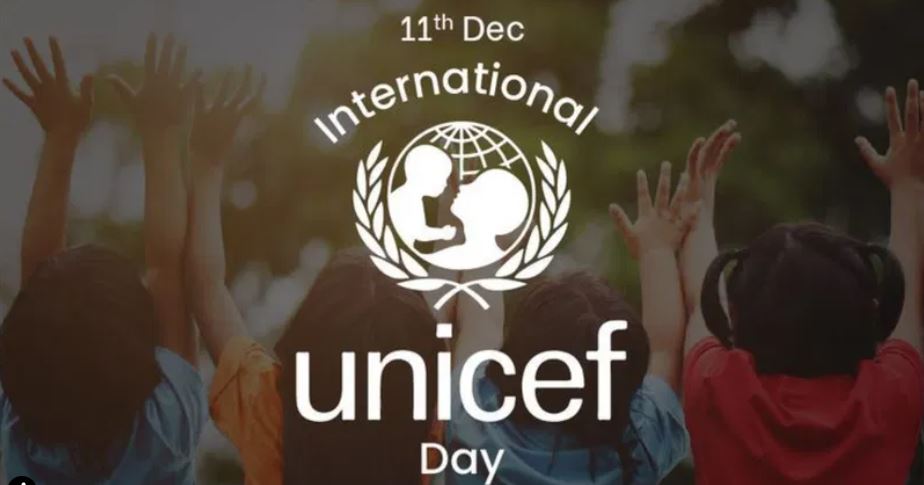
UNICEF Day is celebrated on December 11, the world over. The theme for 2024 is “Listen to the Future.” It emphasizes the importance of children’s voices. In India, children face numerous challenges that hinder their growth and well-being.
UNICEF (United Nations International Children’s Emergency Fund) was established in 1946 to provide emergency assistance to children affected by World War II. Today, it focuses on health, education, and child protection.
UNICEF India lays emphasis on advocating for children’s rights and welfare. In this context, UNICEF day in India, 2024 calls for urgent action to transform children’s futures. In this context, key challenges and solutions for child welfare are enunciated.
The Current Landscape of Child Welfare in India
India faces significant challenges regarding child welfare. As of 2022, approximately 13 million childrenbetween the age group of 10-14 in India live in poverty. Moreover, many lack access to basic needs such as food, education, and healthcare. According to UNICEF data, as of 2019, 35% of children under five are stunted due to malnutrition. Astonishingly, this statistic reflects a severe public health crisis in India.
UNICEF Day in India serves as a reminder of these pressing issues. Dr. Ranjana Kumari states, “Investing in children today ensures a better tomorrow.” As a matter of fact, this quote underscores the urgency of addressing child welfare issues in India.
Health and Nutrition: A Dire Situation
Child malnutrition is a pressing issue in India. Malnutrition impacts children’s physical and cognitive development. Astonishingly, more than half of the child deaths in India each year are due to preventable causes linked to malnutrition. This situation demands immediate action from both the government and society.
UNICEF India initiatives aim to combat malnutrition through various programs. These include providing nutritional supplements and promoting breastfeeding. However, community engagement is vital for these programs to succeed. Families must be educated about proper nutrition.
According to NIH (National Institute of Health), diarrhea is the third leading cause of child mortality in India. As per reports, 13% of all deaths per year of children under 5 in India is due to diarrhea. This statistic highlights the need for improved healthcare access and education on child health practices.
Education: Bridging the Gap
Education is another critical area where India struggles. Despite improvements, millions of children remain out of school. As per recent statistics, about 1.17 million children across India are identified as “out of school” in 2024-25. Uttar Pradesh leads with 784,228 children. As per 2022 data, the annual dropout rate in schools in India is over 12%. Statistically, this is also concerning and highlights systemic issues within the education system that need to be addressed immediately.
UNICEF India advocates for universal access to quality education. Besides, it emphasizes gender equality in education as well. Noticeably, girls often face barriers that prevent them from attending school. Addressing these inequalities requires targeted policies and community involvement.
As per National Achievement Survey report for 2021, nearly 50% of primary school children do not perform at grade level in reading and math. Obviously, this statistic indicates a significant learning crisis that must be addressed urgently.
Protecting Children: A Necessity
Child protection remains a significant challenge in India. Evidently, children are vulnerable to abuse, trafficking, and exploitation. UNICEF reports that over 20% of children experience some form of violence before age 18. Alarmingly, this statistic is shocking and unacceptable.
To combat these issues, UNICEF India promotes child protection laws and awareness campaigns. However, enforcement remains weak in many areas. In this regard, strengthening legal frameworks and community support systems is essential for safeguarding children’s rights.
Kailash Satyarthi, a Nobel laureate, emphasizes this need: “We must listen to our children; their voices matter.” Aptly said, his words remind us that protecting children’s rights is crucial for their futures.
How Can We Inculcate Change?
To bring about necessary reforms, we must focus on holistic changes across various sectors:
- Strengthening Policies: The government must implement stronger policies that prioritize children’s rights.
- Community Engagement: Local communities should be engaged actively in child welfare initiatives.
- Education Reform: Educational institutions need reform to ensure inclusivity and accessibility.
- Health Programs: Expanding healthcare services can address malnutrition effectively.
- Awareness Campaigns: Raising awareness about children’s rights can empower communities.
Expert Insights
Experts agree on the need for urgent action regarding children’s welfare in India:
- Dr. Ranjana Kumari states, “Investing in children today ensures a better tomorrow.”
- UNICEF’s regional director emphasizes, “Every child deserves a fair chance at life.”
- Nobel laureate Kailash Satyarthi notes, “We must listen to our children; their voices matter.”
These insights underline the importance of prioritizing children’s welfare in policymaking.
The Significance of UNICEF Day in India
UNICEF Day in India serves as a reminder of our collective responsibility towards children. In addition, it highlights the importance of global collaboration in addressing children’s challenges. As we commemorate this day, let us reflect on how we can contribute positively.
Conclusion: A Call to Action
In conclusion, UNICEF Day in India calls for urgent reforms in child welfare across the nation. The statistics are alarming but not insurmountable with collective effort:
- Over 190 million children live in poverty.
- Approximately 35% suffer from malnutrition.
- About 6 million drop out of school each year.
These figures highlight the need for immediate action.
Let us commit to listening to our children and advocating for their rights on this UNICEF Day and beyond! Together, we can create a future where every child thrives.

Good blog
Thank you, Manish